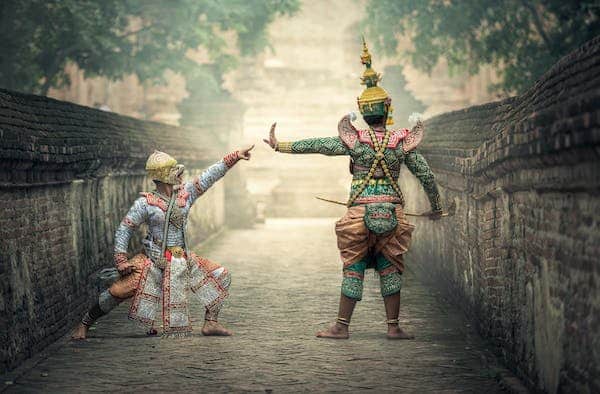The Impact of Big Brother 25 in Inspiring African Youth

The Impact of Big Brother 25 in Attracting and Inspiring African Youth
The Big Brother 25 show’s capacity to draw in and inspire young people has drawn a lot of attention and provoked debates throughout Africa. This article explores Big Brother 25’s overall influence on drawing in and motivating African youth, as well as the historical background of reality programs in Africa and the major personalities involved.
It will also look at the contributions made by significant figures in the industry and offer a thoughtful evaluation of both the good and bad parts of the event. Finally, forthcoming advancements concerning the appeal and motivation of African youngsters via the Big Brother franchise will be taken into account.
The African Reality Shows’ Historical Context
In recent decades, reality television has been increasingly popular in Africa. African media has evolved because to the success of shows like Big Brother Africa and The Apprentice Africa, which attracted millions of people and became cultural icons.
The early seasons of Big Brother Africa established a strong basis for the reality television genre throughout the continent. Big Brother Africa’s first season, which debuted in 2003, established the framework and structure of the program and laid the groundwork for further seasons. The remarkable amalgamation of amusement, drama, and interpersonal relationships is responsible for its enormous appeal to viewers in various African nations.
Important Persons and Their Input
Salim Amin
Salim Amin, the executive producer of Big Brother Africa, was instrumental in introducing the reality program concept to the continent. His knowledge of the local customs and media sector helped mold the initial season and later iterations of the program.
Contestants
By exhibiting their wide range of abilities, personalities, and goals, Big Brother Africa contestants rose to prominence among young Africans. Well-known individuals such as Uti Nwachukwu, Karen Igho, and Idris Sultan became inspirational figures for African youth, encouraging them to follow their passions and overcome social constraints.
Impact on Drawing in and Motivating African Youth
Big Brother 25, the most recent season of the program, has strengthened its reputation as a venue for drawing in and motivating African youth. It gives young people a platform to display their abilities and get noticed by an audience throughout Africa. In addition to assisting participants in starting their professions, this exposure encourages many more young Africans to do the same.
Encouraging Cultural Exchange
By allowing young Africans from different nations to connect and share knowledge, Big-Brother 25 promotes cultural exchange and solidarity among the continent’s youth. By showcasing a variety of African languages, cultures, and customs, participants help spectators understand how rich and diverse the continent is.
Fostering Entrepreneurship
Big-Brother 25 offers a platform that lets players start their own companies and publicize their projects. Young people are motivated to explore creative ideas and become entrepreneurs by their travels, which may help Africa’s economy flourish and create jobs.
Empowering Women
Through their deeds and accomplishments in the house, Big Brother-25 presents strong, independent women who defy gender norms. African girls look forward to the female participants as role models, who inspire them to go after their goals and defy social norms.
Handling Social Issues
The program frequently addresses topics that are widely discussed in society, such mental health, gender inequity, and cultural stigmas. Big-Brother 25 encourages kids in Africa to think critically about these concerns, spread awareness, and push for constructive change by bringing them to light. Big Brother-25 has had some beneficial effects, but there are drawbacks as well.
Mere Entertainment
Detractors claim that reality TV programs such as Big-Brother 25 prioritize entertainment above meaningful substance. At times, the focus on drama and confrontations might obscure the participants’ deep connections and personal growth.
Exaggerated Aspirations
African kids may have exaggerated expectations due to the success tales of past candidates who were either show winners or beneficiaries. This may result in an excessive focus on wealth and notoriety at the expense of other crucial facets of development as an individual and contributions to society.
Future Developments
The success of the franchise in drawing in and motivating African youth through programs like Big Brother-25 will rely on how far it can develop. The good influence on the continent may be amplified by partnerships with African groups promoting youth development, the addition of more educational content, and mentorship initiatives.
Do Young People in Europe Find the Big Brother Reality Show Appealing Too?
As a distinct kind of entertainment that melds fact and fantasy, reality television has captivated viewers’ attention around the globe. The Big Brother reality program, which debuted in the Netherlands in 1999 and has now spread around the world, is one well-known example of this genre. The Big Brother reality show’s appeal to young people in Europe will be investigated in this article, along with its historical background, influential people, effects, and prevailing viewpoints.
Historical Background and Notable Individuals
John de Mol, a Dutch television producer, created the Big Brother reality show, which is a noteworthy achievement in the history of television. With the introduction of social experiment aspects and its ability to captivate people globally, it completely changed the notion of reality television. The concept of the program is on a group of people cohabiting in a specifically designed home under constant camera surveillance, offering viewers a round-the-clock voyeuristic experience.
Big Brother had its European premiere in 1999 in the Netherlands, and it was then adapted in the UK, Spain, Germany, and other nations. Its popularity quickly expanded throughout Europe, grabbing young viewers’ interest. Influential figures in the media, such the renowned narrator Marcus Bentley and host Davina McCall in the UK edition, were crucial in drawing and holding the attention of viewers.
Significance and Prominent Persons
There is no denying the Big Brother reality show’s influence on young people in Europe. It has transformed the way people watch television and turned into a phenomenon in society. This section will examine the show’s impact, both favorable and unfavorable.
Positively, Big Brother has given common people a chance to become well-known and successful. Many of the participants have used the exposure they received from being on the show to launch successful careers in the media. For instance, long after their debut, Verena Koch from the German version and Nasty Nick Bateman from the UK version both had enduring fame and household names.
But the influence of the program isn’t all good. Participants’ mental health may suffer as a result of the intense scrutiny and manipulation that occurs inside the Big Brother house. Contestants’ authenticity and integrity have decreased as a result of the “fame at any cost” phenomena, as participants may purposefully alter their conduct to win over viewers or improve their post-show prospects.
Views and Upcoming Changes
When talking about the appeal of the Big Brother reality program to young people in Europe, it is important to consider several points of view. This section of the article will examine opposing viewpoints held by academics, participants, and critics in order to highlight various facets of this subject.
There are many who contend that the Big Brother structure encourages sensationalism, voyeurism, and a naive comprehension of human interactions. Critics highlight the possibly detrimental effects on the participants’ mental health and denounce the show for taking advantage of their emotions and weaknesses. Furthermore, there have been worries expressed that viewing this kind of reality TV promotes voyeuristic behavior and makes viewers less sensitive to privacy problems.
Supporters, on the other hand, contend that the program provides a singular setting for social observation and provides fascinating new perspectives on interpersonal dynamics and human behavior. They see Big Brother as a very realistic depiction of society that enables viewers to consider their own interpersonal dynamics, personal development, and social ideals. They argue that the program offers a priceless chance for introspection, empathy, and self-reflection.
It seems obvious that reality television will keep changing in the future. There are now more ways to interact with reality programs because to the growth of social media and internet streaming services. Viewers are able to engage, create fan groups, and take a more active part in directing the stories. The line between the actual and virtual worlds may become increasingly hazy as a result of technology like augmented reality and virtual reality.
The Big Brother reality program has clearly drawn in young people in Europe due to its intriguing structure and contentious stories. Even though opinions on the effects and outcomes of these shows are still up for dispute, it’s important to weigh both the advantages and disadvantages of them while assessing their attractiveness. The impact of reality television on European youth and society at large has to be continuously evaluated as it develops.

Conclusion on the Big Brother 25 program
The Big Brother 25 program has unquestionably drawn in and motivated African young by offering a forum for female empowerment, business, cultural interaction, and social concerns. The entertainment value and the way the program creates excessive expectations have drawn criticism, yet the good impact of the show cannot be overstated. Future advancements in the franchise should think about adding additional educational material and significant initiatives to further improve the appeal to and inspiration of African youth as it develops.


1 thought on “The Impact of Big Brother 25 in Attracting and Inspiring African Youth”